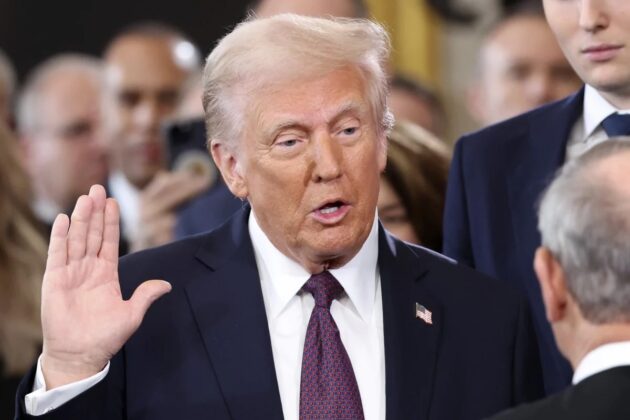
The Shift from Globalization to Isolationism Under Trump » Capital News
For decades, the United States and its Western allies championed globalization, fostering economic integration and international cooperation. However, recent developments suggest a stark departure from this approach, with Washington now prioritizing national interests at the expense of global stability. This shift marks a significant change in the world order, steering away from collaborative leadership toward a more isolationist stance.
Globalization—the increasing integration of economies, cultures, and populations across borders—has long been a driving force behind economic growth and international problem-solving. Amid challenges such as market volatility, climate change, and geopolitical conflicts, a globalized approach remains essential. Nations working together can find solutions to these crises more effectively than those resorting to divisive and protectionist policies.
Yet, under President Donald Trump’s leadership, the U.S. has embraced isolationist policies that weaken globalization. Trump’s withdrawal from international agreements like the Paris Climate Accord and the World Health Organization, along with the imposition of tariffs and sanctions, has disrupted international cooperation. These actions hinder global problem-solving efforts at a time when challenges such as economic instability, the war in Ukraine, and climate threats demand unified responses.
Trump’s foreign policy heavily relies on economic coercion, using sanctions and tariffs as strategic weapons. His administration’s punitive measures against the International Criminal Court (ICC) and trade restrictions targeting allies and rivals alike have created uncertainty in global markets. Rather than fostering stability, these moves fuel tensions and disrupt global supply chains.
Protectionism from major economies like the U.S. contributes to instability, making global trade more unpredictable. For example, Trump’s tariffs on key trading partners, including Canada, Mexico, and China, have ignited trade wars and strained diplomatic relations. His threats of imposing a 100 percent tariff on BRICS nations pursuing de-dollarization further illustrate the risks of an antagonistic approach. With BRICS representing over 45 percent of the global population and a significant share of oil production, isolating these economies is both unrealistic and counterproductive.
Since Trump’s re-election, the world has witnessed increasing geopolitical uncertainty, with shifting alliances, economic disruptions, and weakened multilateral institutions. His policies have empowered individuals like Elon Musk, who now wield significant influence over sensitive global information, without the checks and balances that democratic institutions provide.
While Trump’s tariffs and sanctions aim to pressure foreign economies, history has shown that such measures often backfire. Instead of crippling competitors, they push nations toward economic self-reliance and alternative trade alliances. Rather than unilateral action, the U.S. should prioritize multilateral agreements that promote stability and shared prosperity.
Global economic interdependence means that protectionist policies ultimately harm the very economies they claim to protect. The ongoing U.S.-China trade conflict serves as a reminder that economic warfare can lead to long-term volatility. A more effective strategy would involve strengthening international trade frameworks, fostering open markets, and embracing technological cooperation.
As the world grapples with post-pandemic recovery, climate challenges, and geopolitical tensions, the path forward should be one of cooperation rather than isolation. A resilient, equitable, and sustainable global economy requires dialogue, openness, and shared responsibility among nations. By embracing these principles, countries can navigate economic disruptions and build a more prosperous future for all.
Trump’s executive actions represent a major shift in U.S. foreign policy, marking a retreat from the collaborative leadership role the country once held. While these moves may be framed as safeguarding American interests, their broader consequences—on trade, global health, and environmental policies—paint a troubling picture of rising economic nationalism at the expense of international stability.
The writer is a journalist and communications consultant.